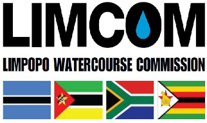PRESS RELEASE
20TH ANNIVERSARY OF THE SIGNING OF THE LIMCOM AGREEMENT
TODAY, 27 November 2023 marks exactly 20 years since the four countries that share the Limpopo River – Botswana, Mozambique, South Africa and Zimbabwe – signed the LIMCOM Agreement to establish the Limpopo Watercourse Commission (LIMCOM).
We wish to pay tribute to those who conceptualized this common vision for LIMCOM Member States to work together in managing transboundary water issues in the Limpopo. Over the past two decades, this common vision has seen LIMCOM register several milestones, transforming the Limpopo Basin Permanent Technical Committee (LBPTC) into one of the most active River Basin Organizations (RBOs) in southern Africa.
However, this could not have been possible if the Limpopo Riparian States had not selflessly committed themselves to working together to promote sustainable management of the Limpopo River Basin (LRB) despite varying and competing needs for water resources.
The LIMCOM Agreement has, therefore, provided the springboard and “political base framework” for Botswana, Mozambique, South Africa and Zimbabwe to see and use the water resources of the Limpopo as a source of cooperation rather than a source of conflict. We will continue to be bonded by this common vision.
The LIMCOM Agreement foresees the establishment of various organs to facilitate its implementation and one of these is the LIMCOM Secretariat (LIMSEC), which through the various Task Teams, has been working with Member States to implement several interventions at basin and catchment levels to manage and preserve water resources for present and future generations.
Since the signing of the LIMCOM Agreement in November 2003, LIMCOM has also continued to monitor the state of the LRB to compile data and information to assist Member States to jointly design and implement informed sustainable development initiatives. These studies have identified some of the critical challenges that the basin faces as well as proffered policy options and mechanisms for mitigating them.
As a link between the State Parties and citizens, LIMCOM plays a pivotal role in providing a platform that ensures that the voices of all those living in the basin are heard and considered in decision-making processes, as well as making sure that all interventions in the basin take deliberate actions to prioritize the inclusion of both women and men and the youth including people living with disabilities.
We will remain committed to our mandate and as one of the active RBOs in the Southern African Development Community (SADC), we will be a vehicle for strengthening regional integration and cooperation through sharing experiences and good practices with other RBOs and Shared Watercourse Institutions (SWIs) in the region.
In this context, LIMCOM is proud to have successfully hosted the 10th SADC RBOs/SWIs Workshop held in October 2023 in Maputo, Mozambique. The biennial event provided an opportunity for RBOs/SWIs in the region to exchange ideas for effective transboundary water resources planning, development, and management.
As we celebrate these and many other achievements, we do not lose sight of what lies ahead. For example, projections indicate that the population of the basin will reach over 20 million by 2040, from the current 18 million, putting more pressure on the transboundary water resources that support various socio-economic activities in the four countries.
It is also expected that climate change, water quality degradation, land degradation, and increasing pressures on groundwater resources will put more strain on the basin, which is already reeling under severe water stress, and high levels of hydro-climatic variability, resulting in both frequent floods and droughts.
These challenges call for enhanced cooperation among the Limpopo Member States. Therefore, LIMCOM must remain united and seek to be the reference point in transboundary water cooperation. Furthermore, Member States must continue working together because uncoordinated activities in any of the countries will have a negative impact on the other.
The achievements of the past 20 years would not have been realized without the support of various stakeholders including Governments, National Institutions, Academia and International Cooperating Partners (ICPs) who are partners to the LIMCOM scope of work. In this regard, LIMCOM wishes to thank all who have made this journey possible, in particular the “people of the basin”.
In the same vein, the challenges of the future will not be addressed without the support of various partners, and we, therefore, call for continued cooperation among all stakeholders. Together, we can make the Limpopo River Basin “A Dynamic, Prosperous and Sustainable River Basin for All”.
HAPPY 20TH ANNIVERSARY
The Limpopo River Basin
The Limpopo River Basin (LRB) is one of the major river basins in southern Africa, and it is shared by four countries namely Botswana, Mozambique, South Africa and Zimbabwe. The catchment area of the LRB is estimated at 408,000 km² and the basin has a population of over 18 million people. The river flows north from South Africa, where it creates the border between South Africa and Botswana and then the border between South Africa and Zimbabwe, before crossing into Mozambique and draining into the Indian Ocean. The basin supports diverse socio-economic activities in the four Riparian States including agro-industry, large-scale irrigation, rain-fed subsistence agriculture, mining, and eco-tourism, and hosts some of the world’s foremost protected areas.
About LIMCOM
LIMCOM was established through the LIMCOM Agreement signed in November 2003 by the four Member States — Botswana, Mozambique, South Africa and Zimbabwe — in Maputo. The main objective of LIMCOM is to advise and “provide recommendations on the uses of the Limpopo, its tributaries and its waters for purposes and measures of protection, preservation and management of the Limpopo.” LIMCOM is based in Mozambique.
Issued by the LIMCOM Secretariat — 27 November 2023

